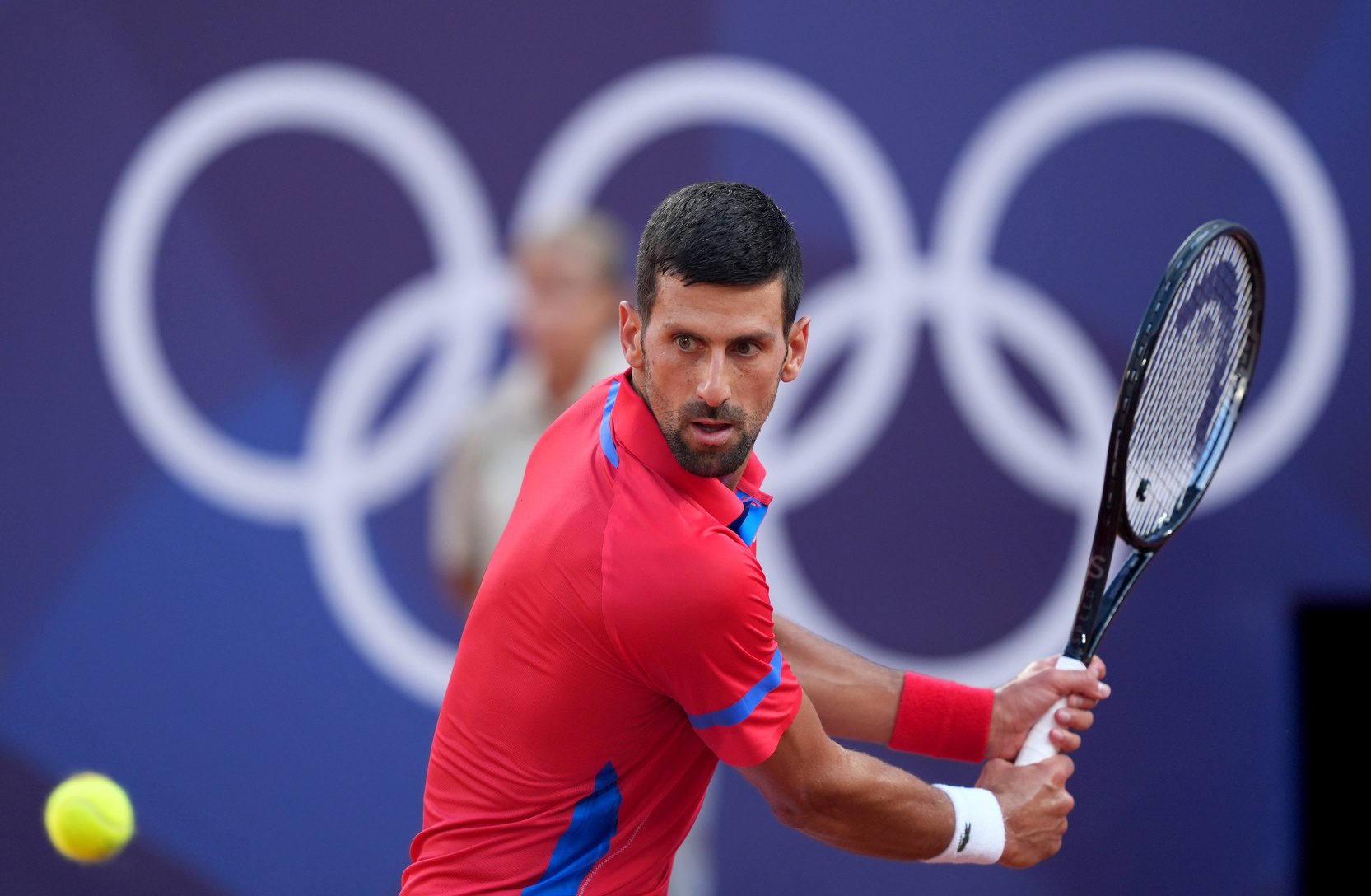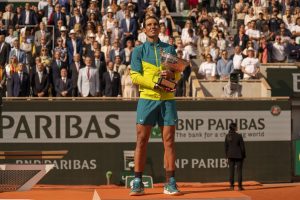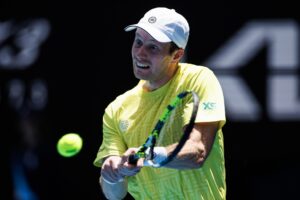Novak Djokovic has, perhaps, the most impressive trophy case in tennis history. And while he doesn’t have as many titles overall as Jimmy Connors or Roger Federer (and is nowhere close to the massive number of titles won by Martina Navratilova and Chris Evert), his 24 Grand Slam titles is unmatched in the modern era, as are his 40 Masters level titles.
However, the one place Djokovic has never left his mark is the Olympic Games. He won Bronze in his first Olympics, back in 2008, and has come back empty-handed in his four appearances since. It’s been a mixture of bad luck, rough draws, and Bronze Medal match letdowns that have really hurt the Serbian. And so, he came into this–almost certainly his final Olympics–with one goal in mind: correcting the record.
The path to the Gold Medal match was not easy. A second-round draw with longtime rival Rafael Nadal was a potential trap, but Djokovic cruised through. Stefanos Tsitsipas, who he met in the quarterfinal, once took two sets off him in a French Open final. Djokovic cruised through. His semifinal opponent, Lorenzo Musetti, had troubled him on clay in the past. But no problems this time in Paris.
Which just left Carlos Alcaraz–the new young star–standing in his way. Alcaraz crushed Djokovic in the Wimbledon final less than a month ago. And, by all accounts, clay should suit Alcaraz’s game much better, and Djokovic’s much worse–especially if Djokovic’s knee is less than 100%. And yet, the Serb made it through, his Golden Slam complete.
Novak Djokovic def Carlos Alcaraz 76(3) 76(2)
It was certainly a match worthy of an Olympic final. Both players were locked in. Djokovic had his knee wrapped, and his movement was clearly not 100%, but he compensated with smart and targeted play. He didn’t run for every single ball, but when he got there every shot was precise. Alcaraz was his usual fast and athletic self all over the court, and he was clearly able to do more than Djokovic. But that doesn’t always matter. Djokovic kept his serve beautifully, and pounced on every opportunity that Alcaraz provided.
The first set was a tight and exciting affair, with both players finding numerous break point opportunities. Neither could ever break through, though, and it wasn’t due to missed opportunities. Each player served big when necessary, and backed up the big points when they had to. That followed all the way through to the tiebreak, when Djokovic finally broke through with a minibreak. After he held his two serves, Alcaraz played perhaps his only poor point of the match to hand away the tiebreak 7-3.
The second set followed much of the same pattern. Each player earned openings on the other’s serve, but the server always found a way. With fewer actual break point opportunities than the first set, the second also found its way to a tiebreak. And, once again, Djokovic found the opening. On the first point, the all-time great hit a stunning forehand winner. Now he was just six serves away from Gold.
Those serves wouldn’t come easy, as Djokovic had to come through an incredible rally with a brilliant defensive lob on the very next point. He couldn’t save the next one, as Alcaraz earned the minibreak back. Djokovic earned another minibreak with a similar forehand winner two points later, though. And this time, he didn’t give it up. Two strong rallies later, and the lead was 5-2.
Alcaraz finally looked beaten. He dropped the next point on his serve, and history seemed inevitable. It took Djokovic just one more point, one more forehand winner, and he finally had a Gold Medal to add to his trophy case.
With the victory, Djokovic becomes just the third man to win a “Career Golden Slam” (a career Grand Slam plus a Gold Medal), and the fifth player overall. He joins Steffi Graf, Andre Agassi, Rafael Nadal, and Serena Williams in the most exclusive of clubs. And while he has appeared vulnerable and unhealthy at times this year, he has once again proven that he’s not at all done yet.
Main Photo Credit: Amber Searls-USA TODAY Sports






